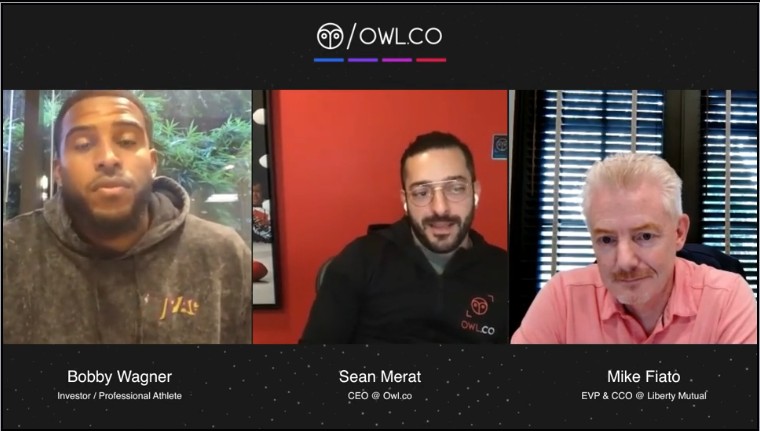The Senate Subcommittee on Disaster Management will hold a hearing this afternoon titled “Examining the Insurance Industry’s Claims Practices Following Recent Natural Disasters.” Among those testifying is Mike Fiato, Executive Vice President and Chief Claims Officer at Allstate. He is a person whose leadership and messaging offer a compelling look into how large insurers publicly frame their claims philosophies. For those of us on the outside, journalists, policyholders, insurance regulators, public adjusters, restoration contractors, consumer advocates, and policyholder attorneys, the hearing presents an important opportunity: to test whether public narratives match internal realities.
Fiato, who appeared on the above-linked Owl.co podcast, “A Leader’s Role in the Future of Insurance,” delivers a thoughtful, seemingly sincere account of what modern claims leadership ought to look like. He speaks with conviction about empathy, accountability, and service. His experience in the industry is extensive and worthy of respect. He began as a claims trainee at Progressive and rose through the ranks to become a regional general manager. He later joined Liberty Mutual as Executive Vice President and Chief Claims and Service Officer for U.S. Consumer Markets, leading over 10,000 employees. In 2024, he became Chief Claims Officer at Allstate, now overseeing over 23,000 professionals responsible for more than 8.5 million claims annually. It’s a position that grants him immense influence over how millions of Americans experience the claims process.
Throughout the podcast, Fiato presents an image of claims leadership that is deeply human-centered. He says that “claims is where promises are kept.” This is a statement that few on the policyholder side would argue with. He believes leaders must be present, especially in moments of catastrophe, and that their job is to create belief in the mission, the team, and the service delivered to customers. He insists that leadership is about more than hitting metrics. Instead, it’s about inspiring trust and creating systems where people feel seen and valued.
However, as someone who has spent four decades advocating for transparency and accountability in the claims process, I listened with equal parts appreciation and skepticism. Fiato’s message is polished and often persuasive. Yet it’s difficult not to wonder how closely these public remarks reflect the internal directives, scorecards, and performance expectations that truly drive behavior within massive insurance organizations.
This tension is apparent in Fiato’s discussion of key performance indicators (KPIs.). He wisely cautions against “KPI tunnel vision,” warning that claims can appear closed on paper while remaining unresolved in a customer’s mind. He endorses a balanced scorecard approach that includes customer satisfaction, Net Promoter Scores, and even internal engagement data. He stresses that metrics must measure what matters and not just speed. He stressed quality, empathy, and clarity.
This sounds not only reasonable but progressive. Yet, I wonder what we might learn if we could review the actual internal KPIs imposed on adjusters and managers within the Allstate claims organization. What are the real incentives driving behavior behind the scenes? How much weight is given to lowering indemnity costs, controlling severity, or minimizing time-on-risk, especially in catastrophe scenarios where speed and cost efficiency are prized over sufficient time with the policyholder, doing a complete investigation, and finding all the damage, which then leads to higher payouts and greater costs?
In previously published articles, “Do Market Conduct Claims Studies Effectively Regulate Wrongful Insurance Company Claims Practices?” and “Property Insurance Claims Procedures Should Be Transparent and Uncovered in Market Conduct Studies,” I have argued that the truth of how insurance companies operate is rarely found in public statements. It is found in internal documentation, company goals, training materials, claims handling guidelines, performance dashboards, vendor instructions, and litigation strategies.
That’s why the upcoming Senate hearing matters. It is one of the rare moments where public testimony could intersect with demands for deeper disclosure. Fiato and his peers will be asked to explain not just what they say about claims handling, but how they implement those ideals. Will senators ask about internal KPI frameworks? Will they push for market conduct studies that examine whether claims practices align with consumer protection laws? Will we hear anything about the use of third-party adjusters, engineering firms, or software tools that may subtly and powerfully influence claim outcomes? Will this be the first of more to come from this Senate panel?
Fiato’s comments on artificial intelligence are another area where the appearance of modernity must be met with a call for oversight. He sees AI as a tool for good, one that can help adjusters move faster and more accurately. However, we must also ask what kind of data these models are trained on. Are they optimized for fairness or, instead, for cost containment? Who audits these tools, and who bears responsibility when automation leads to denial, delay, or underpayment?
I don’t write this to discount what Fiato says. In fact, many of his ideas, particularly his emphasis on frontline empathy and leadership visibility, are laudable. But if we are to be honest in our analysis, we must admit that insurance companies are not judged by words but by practices. What is visible in a podcast often differs from what is embedded in a quarterly or annual claims performance review or goal. What a chief claims officer says may not reflect what a catastrophe team hears during a morning huddle.
Throughout the interview, Fiato offers a compelling picture of what insurance leadership could be. However, to determine whether that picture reflects reality, we need tools beyond anecdotes. We need transparency and vetting of his testimony. We need state regulators and market conduct examiners who can access and evaluate internal KPIs, incentive structures, and communications. We need market conduct studies that go beyond result checklists and into actual audits of processes and culture directives. We need to match public testimony with internal documentary proof. If insurers knew this would happen, they would not act in the field in the way many of us on the policyholder side complain.
I hope the Senate committee recognizes this moment for what it is. Not just a listening session but a chance to ask hard questions and demand honest answers. Not simply about whether leaders like Mike Fiato have good intentions but whether those intentions are consistently and transparently carried out inside the organizations they lead.
Thought For The Day
“It is difficult to get a man to understand something when his salary depends upon his not understanding it.”
—Upton Sinclair





